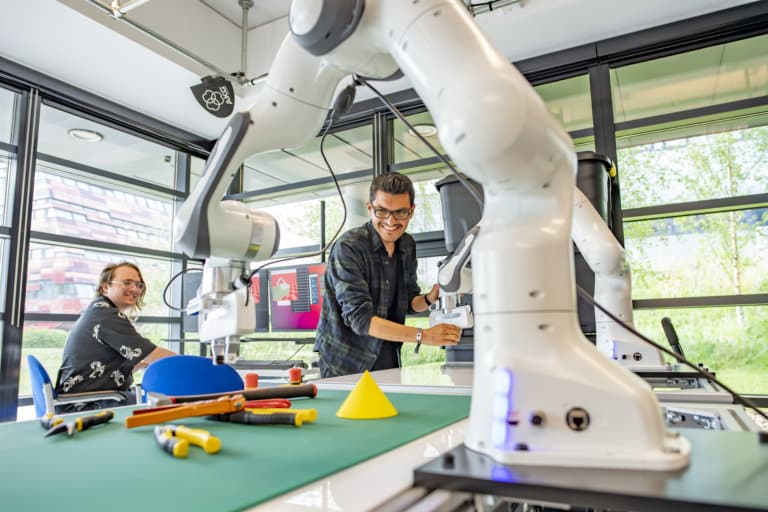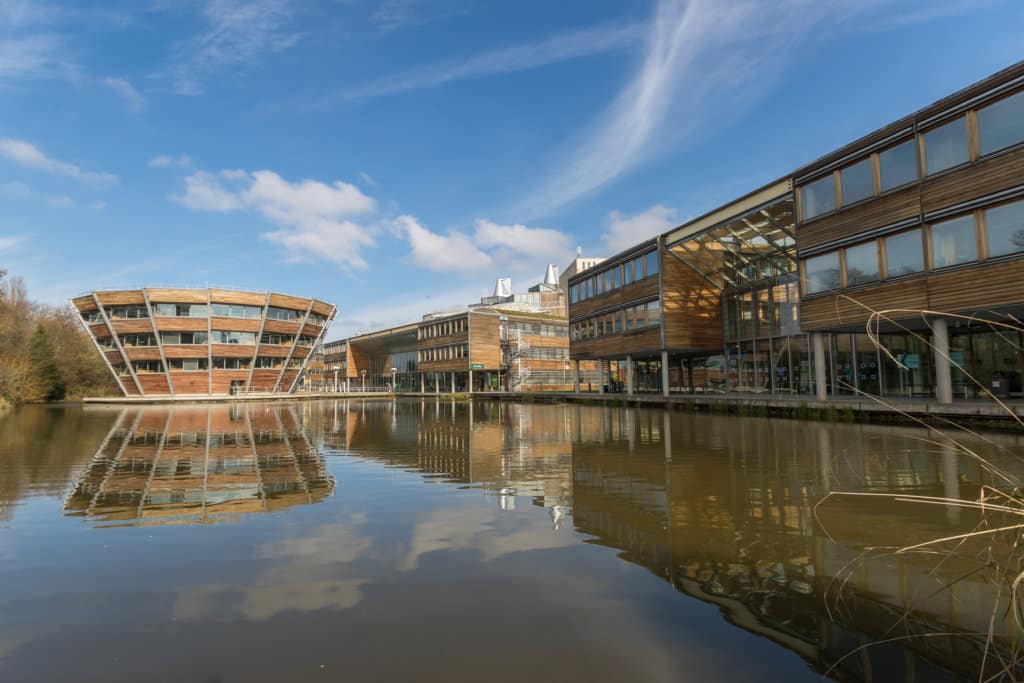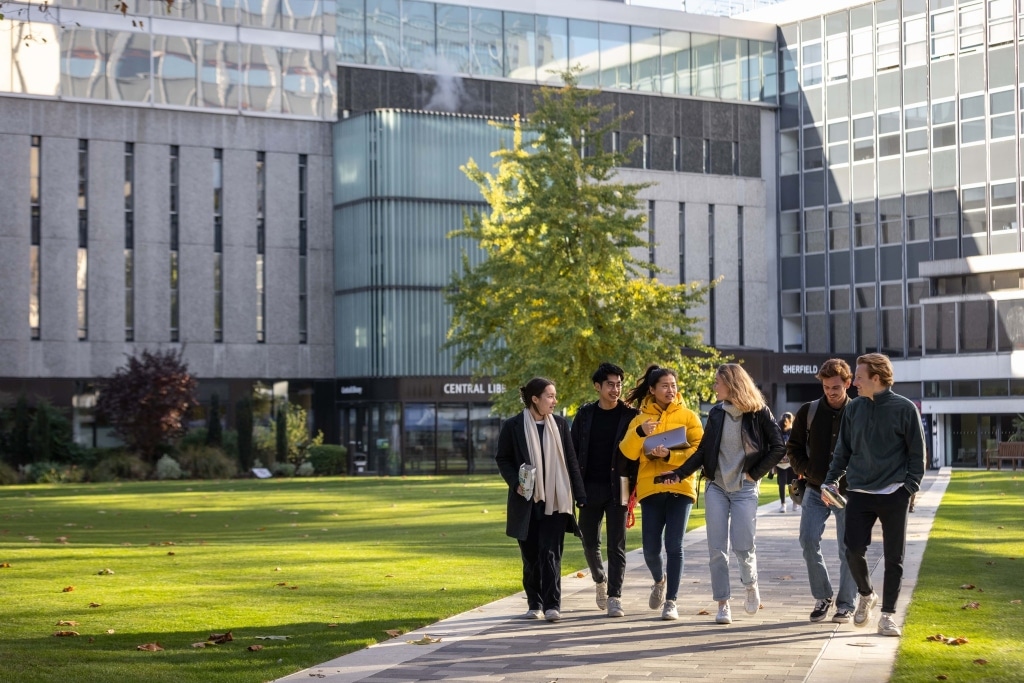
From ChatGPT to TikTok, there is no shortage of tech innovations that are changing the world, sometimes from our very palms. They are elevating the pursuit of computer science programmes at universities, making it the high-salary, high-status discipline of today and no longer the remit of staid programmers hunkered and forgotten in company basements.
A computer science degree takes you far today, even to the C-suites and the most prolific research labs in the world. Whether it’s impact or reward you’re after, it’s never been a more dynamic time to join a computer science programme. The best move you can make is to choose one wisely — which is to say, finding one that offers you the knowledge, experience and support you want and need.
From unis smack in the middle of London’s hustle and bustle to institutions favoured by pioneers past, read on for four of the UK’s best computer science schools:
The University of Nottingham

Teaching quality and state-of-the-art facilities elevate the postgraduate experience at The School of Computer Science at the University of Nottingham. Source: University of Nottingham
The School of Computer Science at the University of Nottingham offers five MSc postgraduate degrees. They are MSc Computer Science (Artificial Intelligence) with a 12 months/24 months option, MSc Human Computer Interaction, MSc Data Science, MSc Machine Learning in Science, and MSc Cyber Physical Systems with a 12 months/24 months option.
The university takes pride in its teaching quality. Lecturers here are world-leading academics, each specialised in their fields. They generously share the latest developments and some of their research findings on the YouTube channel Computerphile. From AI and machine learning to cybersecurity and human-computer interaction, aspiring researchers have the opportunity to learn from them and gain access to a network of industrial leaders.
Students are able to use facilities such as Cobot Maker Space, Cyber Security Lab, Mixed Reality Laboratory (MRL) and large capacity computer labs that are open 24/7, students can explore the future of collaborative robotics, see how novel digital technologies are developed, and more.
Such support, connections and exposure can transform students into career-ready professionals. The School of Computer Science graduates are highly employable — with 96.4% of postgraduates securing work or further study within six months of graduation. Thanks to the university’s partnerships with global corporations, students have gone on to work in diverse roles spanning many industries. Some of these roles include Cloud Developer, Financial Consultant and App Developer in startups, SMEs and big companies such as Experian, FirstApp Ltd, Games Workshop and KPMG.
The School of Computer Science is generous with scholarships too. Postgraduate students can apply for the Excellence in Computer Science Scholarship which entitles them up to a 50% reduction on their annual tuition fees for the duration of their degree.
Imperial College London

Imperial College London’s Department of Computing is ranked third in the UK by The Complete University Guide for Computer Science. Source: Imperial College London/Facebook
Imperial College London’s Department of Computing is ranked third in the UK by The Complete University Guide for Computer Science. On offer at this world top 10 university are three postgraduate programmes and two research training programmes: MSc Computing, MSc Advanced Computing, MSc in Artificial Intelligence, Integrated MRes/PhD Degrees and MRes Artificial Intelligence and Machine Learning.
MSc Computing students must complete all compulsory units and select six from a wide range of modules. The former includes Computer Architecture, Operating Systems, Introduction to C++ Programming, Object Oriented Design and Programming, Integrated Programming Laboratory, and an Individual Project, while the latter spasn Graphics, Computer Vision, Logic-Based Learning, Network and Web Security, Advanced Computer Graphics, to name just a few.
The MSc in Artificial Intelligence consists of six compulsory modules and five chosen modules that let students conduct independent research, produce a technically non-trivial implementation, as well as develop and critically evaluate a system that satisfies the requirements of an AI-based application area. Students will also learn how to communicate challenges and achievement both orally and in writing in addition to how to produce a technical and scholarly report.
Whichever programme you choose, you’ll get ready to do well within a fast and profoundly changing field. You’ll explore state-of-the-art technology in computing and IT industries and understand the foundations of the discipline. At the same time, you’ll earn transferable skills for professional and team-based work, plus the competence to take part in and lead large software engineering projects. Both hard and soft skills are crucial and will serve well anyone wishing to advance their careers.
University of Bristol

The Department of Computer Science has a number of research groups that carry out internationally leading research. Source: University of Bristol/Facebook
With more than 150 countries represented, the University of Bristol has a large international student community making it a friendly and diverse place to study. The university is also a member of the prestigious Russell Group, known for their emphasis on research.
Here at the School of Computer Science, Electrical and Electronic Engineering, and Engineering Maths (SCEEM), computer science students can choose from 10 postgraduate programmes. They include MSc Immersive Technologies (Virtual and Augmented Reality), MSc Cyber Security (Infrastructures Security) and MSc Financial Technology with Data Science.
The MSc Computer Science (Conversion) is ideal for those without prior academic computing experience. The programme provides an understanding of the basis of computer science, its importance in software development, as well as the underlying principles of computer systems and their applications. It also introduces students to industrial-style methods of analysis, design, implementation, testing and documentation in software development and provides an appreciation of the current state and future directions of technological advances in computer science.
The Department of Computer Science has a number of research groups that carry out internationally leading research. World-class facilities such as the Cyber Security Lab and Advanced Computing Research Centre empower staff to carry out research in intelligent systems, digital media, foundations, personal systems, and architecture and design. Computer science and its application across all sciences are revolutionising how we live and relate to each other — and the department aims to anticipate and drive these developments.
*Some of the institutions featured in this article are commercial partners of Study International










